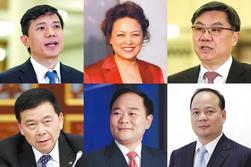
The annual gatherings of the National People's Congress and the Chinese People's Political Consultative Conference are in progress. As such, the executives of automakers like Geely and SAIC Group, battery maker CATL and internet search giant Baidu have submitted their proposals to the political sessions. Here are some of them, keeping an eye on hot issues including industrial standards, auto chips, data security and carbon neutrality.
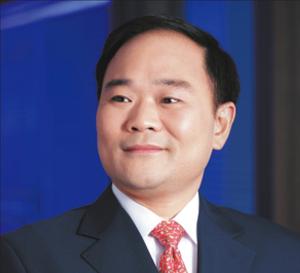 This undated file photo shows Li Shufu, chairman of Geely Holding Group and NPC deputy. (PHOTO PROVIDED TO CHINA DAILY)
This undated file photo shows Li Shufu, chairman of Geely Holding Group and NPC deputy. (PHOTO PROVIDED TO CHINA DAILY)
Li proposed that the product safety and transportation management standards of new energy vehicles should be revised, in order to adapt to long-distance railway transportation.
Li said that with the promotion of NEV sales in Europe and other overseas markets, Chinese NEV products are expected to have more development opportunities overseas, which will bring with them increased demand for cross-border logistics.
Li suggested, based on the product characteristics of NEVs, the safety and transportation standards should be amended and special freight trains for NEV transportation should be launched in due course.
 This undated file photo shows Wang Fengying, president of Great Wall Motors and NPC deputy. (PHOTO PROVIDED TO CHINA DAILY)
This undated file photo shows Wang Fengying, president of Great Wall Motors and NPC deputy. (PHOTO PROVIDED TO CHINA DAILY)
Wang Fengying, president of Great Wall Motors and NPC deputy, proposed that China should establish a defense mechanism to protect key NEV technologies in the process of globalization
Wang called for more efforts to promote the globalization of China's new energy vehicle industry. She said that in recent years, thanks to policy support, technological innovation and large market scale, China has developed into the world's largest NEV market. Under that context, the country has embraced the dual-circulation development pattern and China's automobile industry has ushered in a new development period of globalization.
Wang proposed that China should support automakers that are capable of independent innovation to go global, and establish a defense mechanism to protect key NEV technologies in the process of globalization.
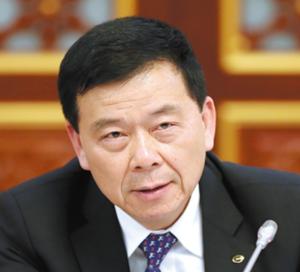 This undated file photo shows Zeng Qinghong, chairman of GAC Group and NPC deputy. (PHOTO PROVIDED TO CHINA DAILY)
This undated file photo shows Zeng Qinghong, chairman of GAC Group and NPC deputy. (PHOTO PROVIDED TO CHINA DAILY)
Zeng proposed that China's automobile industry should give priority to the development of chips. He said that China should concentrate human, financial and material resources to strengthen the construction of an industrial chain in key auto components and parts.
Zeng suggested that the industry should work on both open cooperation and independent innovation to solve short-and long-term chip shortages.
Statistics showed that in 2020, the global auto chip market was worth about 300 billion yuan (US$46.36 billion). China accounted for less than 2.5 percent of that with an independent auto chip industry valued at around 7 billion yuan.
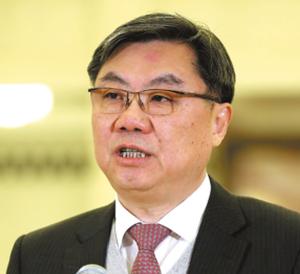 This undated file photo shows Chen Hong, chairman of SAIC Motor Corp and NPC deputy. (PHOTO PROVIDED TO CHINA DAILY)
This undated file photo shows Chen Hong, chairman of SAIC Motor Corp and NPC deputy. (PHOTO PROVIDED TO CHINA DAILY)
Chen said that data collected by intelligent connected vehicles is mainly from outside and inside the vehicle and remote data transmission and exchange, in a large quantity and variety. However, in the process of data acquisition and application, relevant responsibilities and specifications are to be improved.
Chen proposed that a data security system of intelligent connected vehicles should be constructed based on the actual situation of the industry. This is in order to promote the research and formulation of laws and regulations that relate to data security and personal privacy protection.
ALSO READ: Horizon, SAIC form auto chip alliance
Chen also suggested that intelligent connected vehicle companies are obliged to inform their users of possible privacy risks.
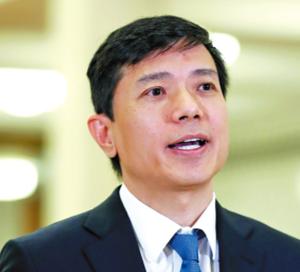 This undated file photo shows Robin Li, CEO of Baidu and CPPCC member. (PHOTO PROVIDED TO CHINA DAILY)
This undated file photo shows Robin Li, CEO of Baidu and CPPCC member. (PHOTO PROVIDED TO CHINA DAILY)
Li proposed that the commercial applications of autonomous driving and the popularity of intelligent transportation should be accelerated. This would allow people to enjoy green and convenient mobility and help the country achieve its goal of reaching a carbon dioxide emissions peak before 2030.
Li suggested that China strengthen policy innovation and open up legalization paths for the large-scale commercial use of autonomous driving. A large-scale commercial promotion mechanism for autonomous driving should be established with the participation of governments at all levels, industry and academia.
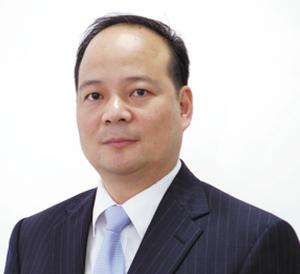 This undated file photo shows Zeng Yuqun, chairman of CATL and CPPCC member. (PHOTO PROVIDED TO CHINA DAILY)
This undated file photo shows Zeng Yuqun, chairman of CATL and CPPCC member. (PHOTO PROVIDED TO CHINA DAILY)
Zeng proposed that electrochemical energy storage should be incorporated into the national and local energy development plans as a new form of national infrastructure. This is because it will play a crucial role in helping reaching peak carbon targets and carbon neutrality.
Zeng said that the large-scale commercial application of electrochemical energy storage should rely on the improvement of energy storage policy and the market environment.
READ MORE: Tesla said to cut price of China-made cars with CATL battery
He suggested developing electrochemical energy storage in China from the aspect of strengthening top-level design. This would formulate and improve the energy storage standard system.


